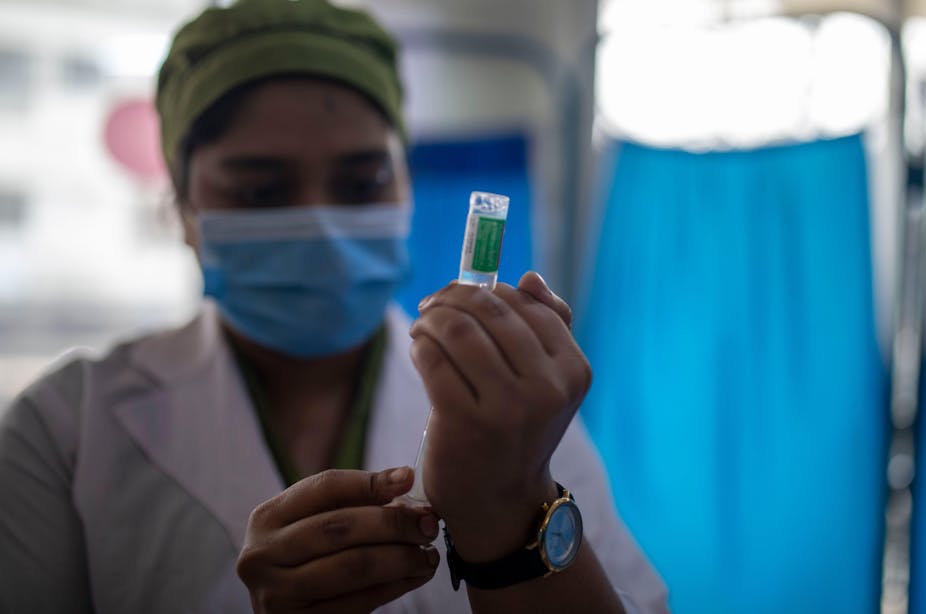In this week’s episode of The Conversation Weekly podcast, we hear about an ongoing battle to relax intellectual property rules around coronavirus vaccines and new research on why China is closing down coal-fired power stations faster in some places than others.
While some of the world’s richest countries are racing ahead with large-scale programmes to vaccinate their populations, for much of the developing world, the first doses of the vaccines remain a long way off.
For the past few months, a group of countries has been pushing for the intellectual property rules around coronavirus vaccines to be waived temporarily, arguing this would help expand supply and push down costs. But a small group of countries – many of them home to the companies which hold the patents for those vaccines that have been licensed – are trying to block it. The issue is likely to be discussed at the World Trade Organization’s General Council in early March.
Ronald Labonté, Distinguished Research Chair in Globalization and Health Equity at the School of Epidemiology and Public Health, University of Ottawa, explains what the push for the waiver is all about. He says what it really comes down to is that these countries “don’t want to touch the intellectual property rights regime” of the specific “TRIPS” agreement that regulates it, which he says “is so profitable to the patent holding pharmaceutical industry”.
Read more: Dummy's guide to how trade rules affect access to COVID-19 vaccines
We also hear from Mosoka Fallah, Lecturer at the School of Public Health, College of Health Sciences at the University of Liberia, who explains what the situation is like on the ground in West Africa. He’s part of a group advocating for more equitable access to COVID-19 vaccines, including more funding for the Covax facility which is procuring vaccines for developing countries.
Read more: No country is an island: collective approach to COVID-19 vaccines is the only way to go
And Anne Moore, Senior Lecturer in Biochemistry and Cell Biology, at University College Cork in Ireland, explains some of the processes behind making a coronavirus vaccine, and the huge scramble to rededicate those facilities are licensed to do so. You can read her article on vaccine manufacturing here.
In our second story this week we hear about new research on why – and where – China is decommissioning hundreds of coal-fired power stations. While China has set an ambitious target for net zero carbon emissions by 2060, Hao Tan, Associate Professor at the University of Newcastle in Australia, says that’s only part of the reason why coal-fired power stations are closing at a faster rate in the east of the country. He explains what this shift means for the wider region, and those countries that export coal to China.
And we finish this week’s episode with some reading recommendation on the historic child sex abuse scandal rocking France from Clea Chakraverty, politics and society editor at The Conversation in France.
The Conversation Weekly is produced by Mend Mariwany and Gemma Ware, with sound design by Eloise Stevens. Our theme music is by Neeta Sarl.
News clips in this episode from Global News, eNCA, DW News, WTO, Arirang News, Reuters, United Nations and Sky News Australia.
A transcript of this episode is available here.
You can listen to The Conversation Weekly via any of the apps listed above, our RSS feed, or find out how else to listen here.

